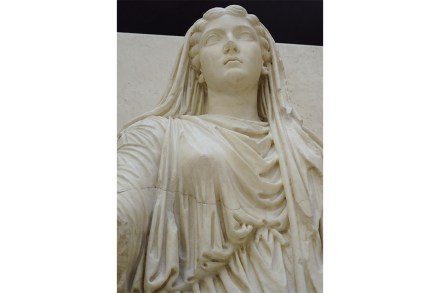They weren’t all scheming poisoners: the maligned women of imperial Rome
Unfortunately, She Was a Nymphomaniac must be one of the most eye-catching book titles of the year. I assumed it was just a riff on John Ford’s 17th-century tragedy ’Tis Pity She’s a Whore, but apparently it came directly from the mouth of a modern tour guide in a museum in Rome. The man was describing Julia, the daughter of the first Roman emperor Augustus, when Joan Smith stepped in. ‘Julia,’ she corrected him, ‘was not a nymphomaniac.’ The rattled guide, who conceded that he was merely following the (biased) ancient sources, may be relieved to learn that he has not been singled out. Smith, the author of the barnstorming




















